Search Results
Showing results 101 to 120 of 148
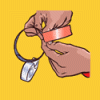
Loopy Geometry
Source Institutions
Discover geometry by creating shapes from loops of paper. In this activity, paper loops transform to give you totally new structures when you cut them.
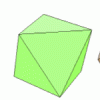
Solidly Platonic
Source Institutions
In this activity, learners follow simple directions to explore and create platonic solids.
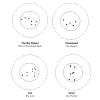
Constellation Scope
Source Institutions
In this activity, young learners explore the basic shapes of constellations by making their own scope out of a cardboard tube and paper with pinpricks.
Rainforest Plant or Animal?
Source Institutions
In this craft activity, learners will compare and contrast the major functions of plants and animals.
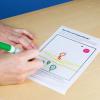
Exploring the Universe: Imagining Life
Source Institutions
“Exploring the Universe: Imagining Life” is a hands-on activity in which visitors imagine and draw an extreme environment beyond Earth, then invent a living thing that could thrive in it.
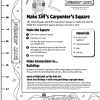
Make Ziff's Carpenter's Square
Source Institutions
In this Cyberchase activity, learners make carpenter's squares and use them to measure square corners. Learners cut out the carpenter's square template and attach it to tagboard.
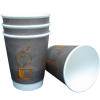
What Can You Make of It?
Source Institutions
In this activity (located on page 2 of PDF), learners explore alternative uses of a simple paper cup, dubbed a "mystery item." Learners act as detectives and explore the properties and functions of th
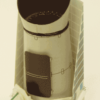
Kepler Paper Model
Source Institutions
In this activity, learners build a paper model of the spacecraft and photometer (telescope) used during NASA's Kepler Mission.
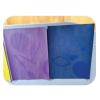
DIY Sunprints
Source Institutions
In this activity, learners will see how UV light affects colors over time by making their own sunprint on construction paper.
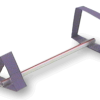
Straws and Airplanes
Source Institutions
Create airplanes from straws and geometric shapes. Test them out to see how far they can fly, or how accurately they can be aimed.
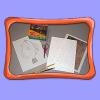
Crazy Camouflage
Source Institutions
In this activity about camouflage, learners create a model that shows how a flounder is able to blend into a variety of environments.
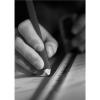
Perspectives: Powers of 10
Source Institutions
In this activity, learners complete a series of drawing activities to explore scale and powers of 10. Learners first trace each other on 1-meter-square pieces of paper.
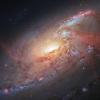
Postcards from Space
Source Institutions
Using information from the My Place in Space lithograph, learners write and/or draw a postcard to friends and family as if they had gone beyond the interstellar boundary of our Solar System, into the
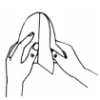
Cut-Fold-Staple
Source Institutions
In this activity, learners discover how to rotate a flat shape into the third dimension. Learners draw and cut out a shape that has at least one straight edge on an index card.
Build a Bridge
Source Institutions
In this activity, learners use recycled materials to build a bridge that holds as many potatoes as possible. They investigate weight, height, strength, and measurement as they seek design solutions.
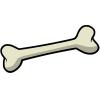
Calcium Collage
Source Institutions
In this activity (on pages 11-14 of PDF), learners cut out pictures from magazines of foods that help make bones strong and glue the pictures to a paper bone.
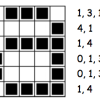
Colour by Numbers: Image Representation
Source Institutions
This activity shows learners how computers use numbers to represent pictures. A grid is used to represent the pixels (short for picture elements) of a computer screen.
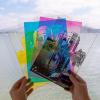
The Three Little Pigments: Science activity that demonstrates the primary and secondary colors of lightScience activity that demonstrates the primary and secondary colors of light The Three Little Pigments Know your C, M, Y, and K.
Source Institutions
Align four color transparencies, each one a single color (cyan, magenta, yellow, and black), and see a beautiful full color image.

NEWspaper: Make Your Own Paper
Source Institutions
Learners make their own paper using old newspaper. Learners can make their paper colorful by adding construction paper.
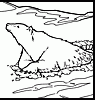
Arctic Story Puzzles
Source Institutions
This activity has three story puzzles learners can solve to learn about life in the Arctic.
